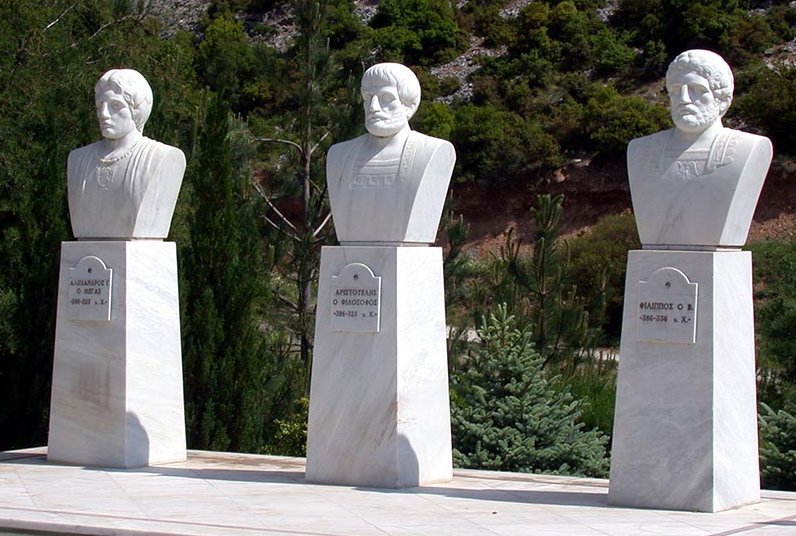Aristotle’s Influence On Education Of Alexander The Great – Historical Encounter Of Two Famous Men
A. Sutherland - AncientPages.com - In the 4th century BC, two great individualities of the contemporary world met: Alexander the Great (356–323 BC) and Aristotle of Stagira (384–322 BC), one of the greatest philosophers of all time.
Aristotle teaches young Alexander. Image credit: Charles Laplante (1837–1903) via Wikipedia
In 343/342 BC, when Alexander was a 13-year-old prince, his father, Philip II, Macedonian ruler of the kingdom of Macedon from 359 BC to 336 BC, called Aristotle to his court. Aristotle was a tutor worthy of the prince, so Philip employed him and paid a handsome and appropriate fee.
Alexander's Education Place - Midas Gardens In The village of Mieza
Pella (where Alexander was born) was not a good place for the young prince at this stage in his career. Even the influence of Olympias, Alexander's mother who lived in Pella, could negatively influence young Alexander. Higher education for the young Alexander demanded rural solitude and harmony rather than unhealthy political and court intrigues.
King Philip assigned Aristotle the Precinct of the Nymphs at Mieza, a village in Ancient Macedon, as a place of education.
According to Plutarch (45 – 127 AD), a Greek biographer and essayist, Alexander was initially influenced by his earlier teachers. However, Philip did not trust them much.
Aristotle And His Mind
Aristotle's interests included logic, physics, the theory of poetry, politics, and nature, to considerations on the foundations of reality and morality, but he was not very fond of mathematics.
 Excavations of the "Aristotle School" near Naousa. Image credit: Jean Housen - CC BY-SA 4.0
Excavations of the "Aristotle School" near Naousa. Image credit: Jean Housen - CC BY-SA 4.0
He was a student of the great philosopher Plato and studied at his school, the Academy, for 20 years. Aristotle was also a great naturalist and one of the first known historians of bibliophiles. The genius mind taught Alexander and probably some other very young nobles who later became great chiefs and kings.
The employment as a tutor gave Aristotle many new opportunities. He could establish a library in his Lyceum in Athens, and king Philip resettled Aristotle's birthplace Stageira), bringing back those of its citizens who had been enslaved or exiled.
Aristotle's Teaching Of Alexander
The cooperation lasted three years and unquestionably influenced Alexander, the young heir to the throne.
We know about this education mainly from the second, third, and even fourth hand. The young pupil certainly read Homer's "Iliad" and "Odyssey," the basis for the education of every cultural Greek. The copy of the "Iliad" with Aristotle's comments always accompanied him. He even took it with him for a war campaign that would take Alexander from Greece to India and make him the conqueror of almost the entire world (known to the ancients).
However, there are good reasons to think that the student did not follow the path the philosopher pointed out to him.
Aristotle passed many of his ideas on to Alexander; however, it is not clear how his studies influenced the young man's mind. There are no surviving books, letters, papers, or other works resulting from the teachings in Mieza.
The young Alexander was interested in reading and learning. His favorite book Homer's Illiad, was of great importance to him. It was his guidebook of the art of war '.
According to Onesicritus, a Greek historical writer, who accompanied Alexander the Great on his campaigns in Asia, Alexander took Aristotle's revised version – the so-called "casket copy" and always had it under his pillow along with his dagger.
Busts of Alexander the Great, Aristotle and Philip II of Macedonia. Image credit: Vlasis Vlasidis - CC BY-SA 3.0
It was not easy to find books in isolated regions of Asia, So Alexander ordered to send him the texts of Sophocles, Aeschylus, and several tragedies by Euripides.
In the book "Alexander the Great," Waldemar Heckel and J.C. Yardley say:
"Initially, he had great regard for Aristotle, whom he loved no less than his father, as he used to say – thanks to the one he had life, and thanks to the other, he knew how to live well.
Later, however, he regarded Aristotle with some suspicion, not enough to want to do him harm, but the fact that his familiarity with him lacked its former intensity and warmth indicated a rift in their relationship...."
Aristotle taught Alexander to regard hedonistic life as entirely worthless. It must have had a strong appeal for Alexander, who possessed highly developed self-control and self-denial (at least during the earlier stages of his career). He used to eat very little and give away spoils of war, keeping very little for himself.
Therefore, at the beginning of his reign, Alexander followed his teacher's doctrine and fought against hedonism.
Intellectual Achievements Of Alexander
Alexander developed "a strong interest in medicine and biology — two more of Aristotle's own favorite subjects. Throughout his life, he was, Plutarch says, 'not only fond of the theory of medicine, but actually came to the aid of his friends when they were sick, and prescribed for them certain treatments and regimens". (P. Green, Alexander of Macedon, 356–323 B.C)
Alexander had much scientific curiosity and respect for science. When Alexander launched his Asiatic invasion, he took with him zoologists, botanists, and other scientific experts who later contributed crucial material for science.
He read and discussed poetry, especially Homer; he was taught basics in geometry, astronomy, and rhetoric and was interested in philosophy, medicine, and natural sciences.
Political Views Of The Young King And Warrior
It isn't easy to establish to what extent Aristotle's philosophical views have shaped the young Aleksander's way of thinking. Most probably, there were very few things that both agreed on, said the 20th-century philosopher Bertrand Russell.
Aristotle's political views were based on the obsolete concept of the Greek city-state at that time. The idea of a small city-state could not speak to an ambitious prince who wanted to build a large, centralized empire. Alexander also had to be skeptical about the Aristotelian principle of treating non-Greeks like slaves, because he was dreaming of a vision of an empire based on fruitful, partnership cooperation between winners and the losers.
Alexander The Great Disagreed With Aristotle On Some Issues
In his book "Alexander the Great, "Peter Green writes that if Alexander took over some of his tutor's ethics, he did not agree with his teaching about the state.
Aristotle believed in the division of people into Greeks and Barbarians. These views are reflected in his quest to gain glory at the expense of people standing lower than the Greeks. Slavery was entirely natural for him, and non-Greeks were supposed to be non-Greeks. According to Aristotle's teachings, Alexander wanted to become a Greek Chief and a despot for the Barbarians. He despised the Athenian democracy, convinced of his family's supremacy over all other people and nations.
The three years spent with Aristotle and his teachings played a crucial role in the life of Alexander and left a permanent mark on him. These two prominent minds met only occasionally, if at all.
Once his education was accomplished, Alexander was on his own.
Written by – A. Sutherland - AncientPages.com Senior Staff Writer
Updated on October 1, 2022
Copyright © AncientPages.com All rights reserved. This material may not be published, broadcast, rewritten or redistributed in whole or part without the express written permission of AncientPages.com
Expand for referencesMore From Ancient Pages
-
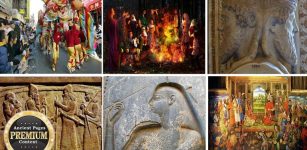 Ancient History Of New Year’s Celebrations And Traditions From Around The World
Ancient Traditions And Customs | Dec 31, 2024
Ancient History Of New Year’s Celebrations And Traditions From Around The World
Ancient Traditions And Customs | Dec 31, 2024 -
 Moirai (The Fates): Greek Incarnations Of Destiny And Personification Of A Single, Unavoidable Fate
Featured Stories | Aug 1, 2019
Moirai (The Fates): Greek Incarnations Of Destiny And Personification Of A Single, Unavoidable Fate
Featured Stories | Aug 1, 2019 -
 Clovis Burial At Anzick Site And New Questions About Early Inhabitants Of North America
Archaeology | Jun 21, 2018
Clovis Burial At Anzick Site And New Questions About Early Inhabitants Of North America
Archaeology | Jun 21, 2018 -
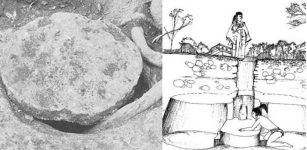 Mysterious Chultuns – Ancient Underground Chambers Built By The Maya – But For What Purpose?
Featured Stories | Jun 24, 2017
Mysterious Chultuns – Ancient Underground Chambers Built By The Maya – But For What Purpose?
Featured Stories | Jun 24, 2017 -
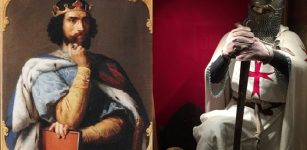 Did Richard The Lionheart Order Assassins To Kill Conrad Of Montferrat, King Of Jerusalem?
Featured Stories | Dec 27, 2018
Did Richard The Lionheart Order Assassins To Kill Conrad Of Montferrat, King Of Jerusalem?
Featured Stories | Dec 27, 2018 -
 Adorable Village Of The Little People In Connecticut
Featured Stories | Jul 25, 2019
Adorable Village Of The Little People In Connecticut
Featured Stories | Jul 25, 2019 -
 Prehistoric Human Migration In Southeast Asia Driven By Sea-Level Rise – Study Reveals
Archaeology | Feb 6, 2023
Prehistoric Human Migration In Southeast Asia Driven By Sea-Level Rise – Study Reveals
Archaeology | Feb 6, 2023 -
 Aboriginal Australians Were World’s First Astronomers Who Discovered Variable Stars – Astrophysicist Says
Archaeology | Jul 16, 2019
Aboriginal Australians Were World’s First Astronomers Who Discovered Variable Stars – Astrophysicist Says
Archaeology | Jul 16, 2019 -
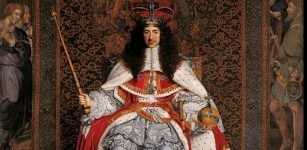 On This Day In History: King Charles II Is Restored To The Throne Of England, Scotland And Ireland – On May 29, 1660
News | May 29, 2016
On This Day In History: King Charles II Is Restored To The Throne Of England, Scotland And Ireland – On May 29, 1660
News | May 29, 2016 -
 Indigenous Village Estimated To Be 11,000 Years Old – Discovered Near Sturgeon Lake
Archaeology | Feb 10, 2025
Indigenous Village Estimated To Be 11,000 Years Old – Discovered Near Sturgeon Lake
Archaeology | Feb 10, 2025 -
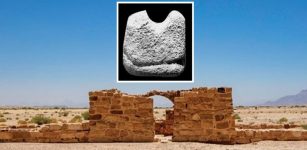 World’s Oldest Chess Piece Discovered At Humayma In Jordan?
Archaeology | Nov 26, 2019
World’s Oldest Chess Piece Discovered At Humayma In Jordan?
Archaeology | Nov 26, 2019 -
 Cajamarca, Peru: Three Archaeological Sites – Identified
Archaeology | Aug 24, 2015
Cajamarca, Peru: Three Archaeological Sites – Identified
Archaeology | Aug 24, 2015 -
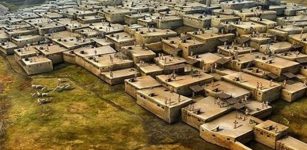 8000-Year-Old Prehistoric Çatalhöyük: Residents Were Buried In Their Homes
Archaeology | May 1, 2020
8000-Year-Old Prehistoric Çatalhöyük: Residents Were Buried In Their Homes
Archaeology | May 1, 2020 -
 Unusual Old Stone Map Found In The American Southwest
Featured Stories | May 9, 2024
Unusual Old Stone Map Found In The American Southwest
Featured Stories | May 9, 2024 -
 Beware Of The Shapeshifting Gaelic Bodach Who May Be Difficult To Trick
Christmas Traditions | Dec 20, 2024
Beware Of The Shapeshifting Gaelic Bodach Who May Be Difficult To Trick
Christmas Traditions | Dec 20, 2024 -
 Illapa: Powerful Master Of Clouds, Rain And Hail – Worshipped By Inca People
Featured Stories | Jul 7, 2016
Illapa: Powerful Master Of Clouds, Rain And Hail – Worshipped By Inca People
Featured Stories | Jul 7, 2016 -
 Evidence Ancient Civilizations Had Knowledge About Planets In Our Solar System Thousand Years Ago
Ancient Mysteries | Mar 10, 2021
Evidence Ancient Civilizations Had Knowledge About Planets In Our Solar System Thousand Years Ago
Ancient Mysteries | Mar 10, 2021 -
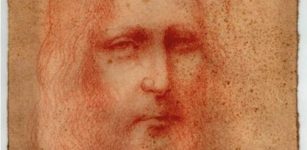 Unknown Sketch Of Jesus Christ By Leonardo Da Vinci Could Be The Holy Grail Of Art
News | Nov 24, 2020
Unknown Sketch Of Jesus Christ By Leonardo Da Vinci Could Be The Holy Grail Of Art
News | Nov 24, 2020 -
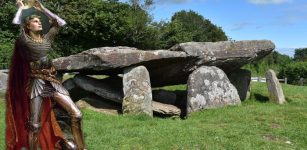 Excavation Of A Mysterious 5,000-Year-Old Tomb Linked To King Arthur Has Started
Archaeology | Jul 5, 2022
Excavation Of A Mysterious 5,000-Year-Old Tomb Linked To King Arthur Has Started
Archaeology | Jul 5, 2022 -
 Silver And Bronze Coins Discovered In Ancient Roman Fort Apsaros, Georgia
Archaeology | Jul 23, 2018
Silver And Bronze Coins Discovered In Ancient Roman Fort Apsaros, Georgia
Archaeology | Jul 23, 2018


